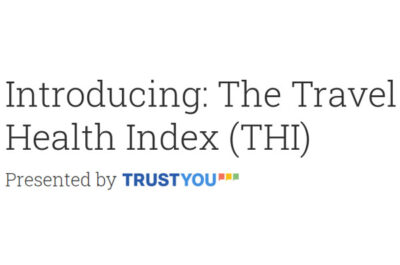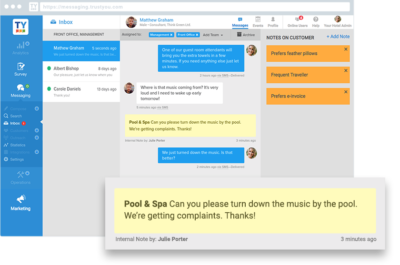Travelers read only about 1.2% of reviews before booking. Let that sink in for a minute because it is very little of what’s available.
Travelers are armed with more information than ever to make travel decisions. Vastly more. In fact, there are on average 465 reviews per hotel available to be read (Tnooz). With so much feedback in hand before booking, travelers should be pretty happy with their accommodations these days. But do they really have the feedback they need to make an informed decision?
Travelers read only about 1.2% of reviews before booking. Let that sink in for a minute because it is very little of what’s available. Leisure travelers read an average of 6 to 7 reviews before booking while business travelers read an average of 5, according to “Consumer Research Identifies How To Present Travel Review Content For More Bookings,” that I worked on in conjunction with Donna Quadri-Felitti, PhD, Director of the School of Hospitality Management at Pennsylvania State University.
It’s worth noting that most of these travelers have spent 30 minutes reading reviews. They’ve invested time and clearly feel that they’ve gotten enough information but are walking away without the scope of feedback they need to make a truly informed decision.
This is exacerbated by the fact that when travelers read just a handful of reviews, they tend to read the outliers: the very good and the very ugly. Neither is a winning situation. Reading a few great reviews establishes unreasonable expectations, while reading a few really bad reviews sends them out the door prematurely.
Hotels have (yet another) new job in helping travelers see the big picture. Aiming for the right traveler and the right trip is nothing new for hotels, but the process of getting there is becoming more complicated. It’s not enough to simply embrace travel reviews anymore; hotels are now tasked with providing review data in a way that paints a holistic image of the property. Fortunately, this serves everyone’s interests.
Review summaries -at TrustYou we call them Meta Reviews- are one opportunity to do this. In addition to summarizing all verified hotel review data available across the web, Meta Reviews also offer a more visual representation of traveler feedback. It’s less time-consuming to digest and it actually tells the whole story. Review summaries are completely customizable. Some hotels use symbols to indicate overall traveler satisfaction levels, while others use a points system (9.0 out of 10, for instance.) Many hotels will provide short summaries of what travelers say about rooms, food, ambiance, and so forth.
The benefits of Meta Reviews are many. Review summaries not only make travelers feel more confident about their decisions, they also make what has become an arduous research process much easier. In our travel review report, 52% of respondents said summarized reviews were the most user friendly way of getting traveler feedback and 72% said they were the most mobile friendly. Hotels, on the other hand, benefit from aggregating all reviews into a realistic portrayal of the property, exposing the untapped middle ground where most of the best reviews are located.
Margaret Ady is Marketing Director at TRUSTYOU.





























































































































































